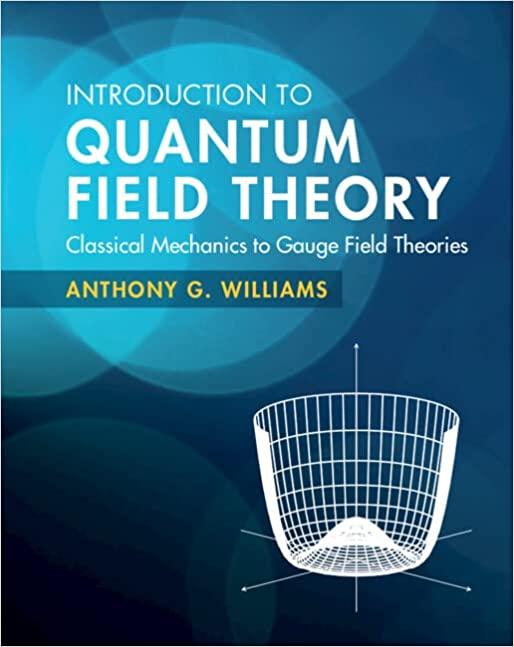For any vector operator (hat{mathbf{V}}) in quantum mechanics we have (left[hat{V}^{i}, hat{J}^{j} ight]=i hbar epsilon^{i j k}
Question:
For any vector operator \(\hat{\mathbf{V}}\) in quantum mechanics we have \(\left[\hat{V}^{i}, \hat{J}^{j}\right]=i \hbar \epsilon^{i j k} \hat{V}^{k}\) from Eq. (4.1.114). It will be helpful to also recall Eq. (1.2.64).
(a) Use these results to show that \(\left\langle j_{b} m_{b}\left|\hat{V}_{z}\right| j_{a} m_{a}\rightangle=0\) unless \(m_{a}=m_{b}\).
(b) Define \(\hat{V}_{ \pm} \equiv \hat{V}_{x} \pm i \hat{V}_{y}\) in the usual way and show that \(\left\langle j_{b} m_{b}\left|\hat{V}_{ \pm}\right| j_{a} m_{a}\rightangle=0\) unless \(m_{b}=m_{a} \pm 1\).
(c) Evaluate \(\left[\hat{J}_{+}, \hat{V}_{+}\right]\)and use this result for the special case \(j=j_{a}=j_{b}\) to obtain the dependence of \(\left\langle j(m+1)\left|\hat{V}_{+}\right| j m\rightangle\) on \(m\).
(d) Extending the result of part (c), show that \(\left\langle j m_{b}|\hat{\mathbf{V}}| j m_{a}\rightangle=C_{j}\left\langle j m_{b}|\hat{\mathbf{J}}| j m_{a}\rightangle\), where \(C_{j}\) is a constant independent of \(m_{b}\) and \(m_{a}\).
Step by Step Answer:

Introduction To Quantum Field Theory Classical Mechanics To Gauge Field Theories
ISBN: 9781108470902
1st Edition
Authors: Anthony G. Williams





